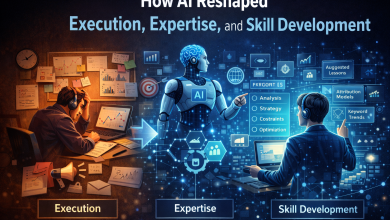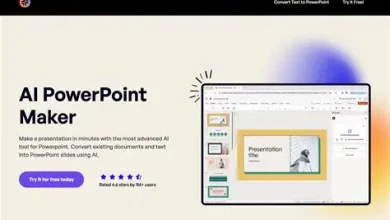
AI is rapidly reshaping industries, redefining how we work, and forcing leaders to rethink traditional processes. It’s delivering unprecedented speed, automation, and access to insights that can transform decision-making and unlock new levels of productivity. But amid all this progress, one essential truth remains: the most powerful driver of leadership isn’t a machine, it’s emotional intelligence.
AI should enable, not replace
Technological shifts have always rewarded leaders who adapt early. The internet, cloud computing, and automation changed the game for countless industries, and now AI is doing the same. But like every past wave of innovation, AI is only as effective as the human oversight behind it. Strong implementation still requires sound judgment, strategic thinking, and emotional awareness.
Take healthcare. AI is already revolutionising diagnostics, rapidly analysing medical images and increasing accuracy. But when a patient hears news about their health, they don’t want it from a machine, they want it from a doctor. In finance, AI can process thousands of market signals in real time, but markets aren’t moved by data alone. They’re shaped by sentiment, psychology, and geopolitics – factors that demand human intuition.
The lesson? AI enhances human decision-making; it doesn’t replace it. The leaders who thrive in this era will be those who know when to trust technology and when to trust themselves. As AI continues to evolve, the true differentiator won’t be access to tools, it will be the knowledge to use them with discernment. Data can inform direction, but only people can provide emotional context, empathy, and judgment. The most effective leaders will use AI to sharpen their thinking, not substitute it.
Honing Your Superpower
For leaders, AI shouldn’t just be a productivity tool, it should be a decision-making ally. One of its greatest strengths lies in summarisation: condensing massive amounts of information into clear, actionable insights. It’s like having a thousand analysts at your fingertips, scanning market trends, competitor activity, or customer behaviour in real time.
And this isn’t theoretical. It’s already happening. Leaders who leverage AI to reduce time spent gathering and interpreting data can reinvest that time where it matters most: setting vision, driving innovation, and deepening relationships.
That said, good leaders aren’t expected to have all the answers. What they do have is a bias toward curiosity – a hunger to surround themselves with diverse perspectives and data to inform their thinking. AI should be one of those inputs. But the final decision? That’s still on us.
There’s no one-size-fits-all playbook. Adopting AI is not a switch you flip; it’s a process. A series of decisions. A balance between automation and discernment. Judgment still matters. And it always will.
Turning AI into competitive advantage
When deployed broadly across an organisation, AI’s impact multiplies. Leaders who champion cross-functional adoption can accelerate decision-making, eliminate bottlenecks, and redirect time toward high-impact work.
In sales, AI can summarise client calls, generate account plans, and draft follow-up emails, freeing reps to build deeper relationships. In marketing, it streamlines campaign optimisation and content creation so teams can focus more on storytelling than spreadsheets. The result? Teams that move faster, think bigger, and operate more strategically.
The bigger risk isn’t moving too fast, it’s waiting too long. AI-powered organisations are already accelerating past their competitors. The question isn’t if AI becomes core to your business, it’s how soon.
The irreplaceable human
AI can mimic tone, analyse sentiment, and synthesise information. But it can’t build trust. It doesn’t connect. It doesn’t feel. The best leaders don’t just drive results, they make people feel seen, heard, and understood.
That’s what emotional intelligence delivers. In fact, it may be the most underrated competitive advantage in an age of automation.
According to a global survey by McKinsey, 78% of global organisations now use AI in at least one business function, up from 72% just last year. But as adoption surges, so does the demand for authenticity. Employees and stakeholders want to understand the “why” behind decisions. They want clarity, conviction, and context from leaders, not just data.
That’s why leaders who lead with empathy, communicate with transparency, and show up with authenticity will shine brightest. Because even in a world transformed by AI, people still follow people.
Leading through change
We’re living through one of the most profound technological shifts of our time. And like every era of disruption, it will reward those who adapt with urgency and lead with purpose.
But the leaders who truly stand out will be those who recognise that their most powerful asset isn’t AI, it’s EQ.
Emotional intelligence isn’t a soft skill; it’s a strategic one. It’s what builds trust. Inspires teams. Fuels bold decisions. And in an age where algorithms are everywhere, it’s what sets great leaders apart. The future will be shaped by those who can balance speed with self-awareness, and progress with purpose. Even in the most automated future, successful leadership will remain human.





